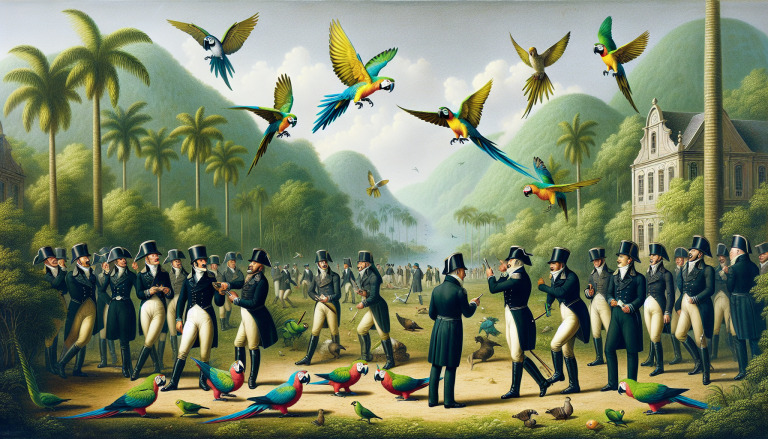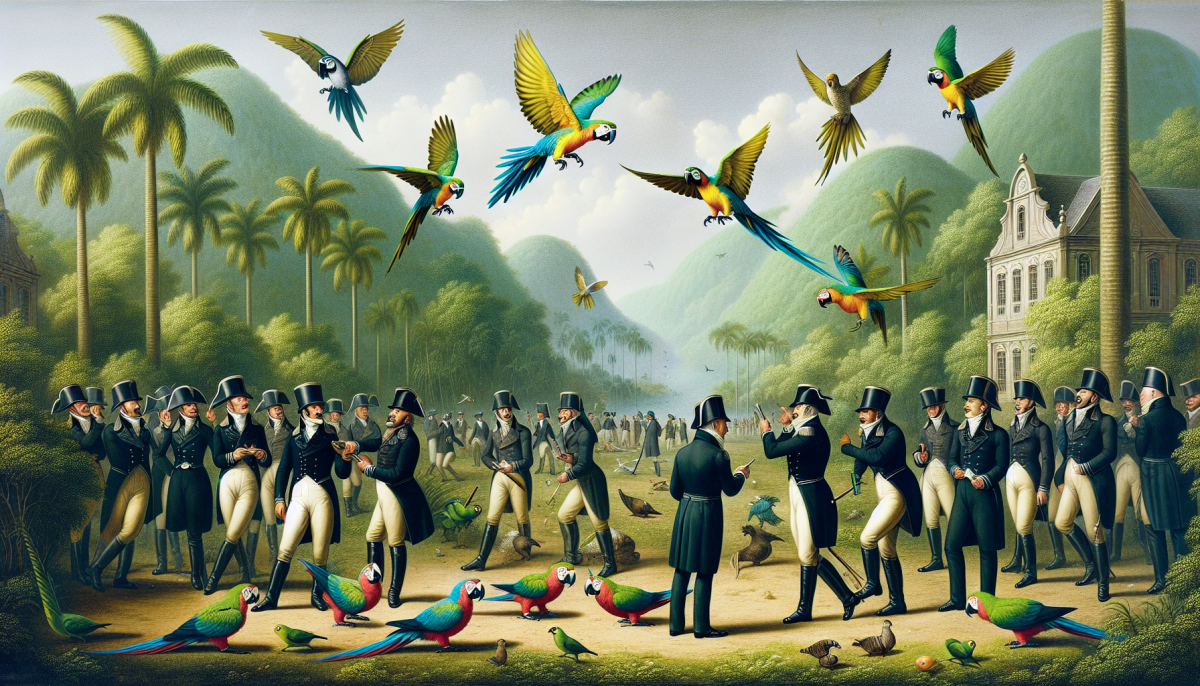The Battle of the Kakapo: When Flightless Birds Took on the British Empire

In the annals of history, few military blunders can rival the sheer comedic genius of the Battle of the Kakapo. This epic clash between the mighty British Empire and a motley crew of flightless, nocturnal birds is a testament to the old adage “beating a dead horse” – a futile effort taken to the absolute extreme.
It all began in the lush, verdant forests of New Zealand, where the Kakapo, a peculiar species of parrot-like birds, had reigned supreme for centuries. These plump, green creatures, with their endearing waddling gait and penchant for midnight serenades, were blissfully unaware of the impending storm that was about to engulf them.
The year was 1845, and the British, in their relentless quest to expand their colonial empire, had set their sights on the remote islands of New Zealand. Led by the ever-ambitious General Sir Reginald “Stumpy” Smythe, the British forces landed on the shores, determined to subjugate the native Maori population and claim the land as their own.
But the Kakapo, in a display of sheer audacity, decided to take on the might of the British Empire. Rallying their comrades with a series of thunderous honks and grunts, the flightless birds marched towards the invaders, their beady eyes gleaming with a determination that defied all logic.
General Smythe, taken aback by this unexpected display of avian aggression, ordered his troops to stand their ground. “Surely these oversized pigeons pose no real threat,” he scoffed, “let us teach them a lesson they’ll never forget.”
What followed was a spectacle that would have made even the most seasoned military historians chuckle with disbelief. The Kakapo, undeterred by the muskets and bayonets of the British soldiers, charged headlong into the fray, their stubby wings flapping furiously as they waddled towards their enemies.
The battle raged on for hours, with the Kakapo employing a variety of unorthodox tactics, including the “Kamikaze Dive-Bomb” and the “Barrage of Fecal Matter.” The British, initially amused by the antics of their feathered foes, soon found themselves overwhelmed by the sheer tenacity of the Kakapo.
“It was like watching a horde of angry, green potatoes trying to overthrow the Crown,” one bewildered soldier was quoted as saying. “We just couldn’t seem to make a dent in their ranks, no matter how many we shot or bayoneted.”
As the sun began to set, the Kakapo, sensing victory within their grasp, launched their final, desperate assault. Thousands of the birds, their feathers ruffled and their eyes wild with determination, charged towards the British lines, unleashing a cacophony of honks and screeches that could be heard for miles.
General Smythe, realizing the futility of the situation, ordered a hasty retreat. “Retreat, you fools!” he bellowed, “These cursed birds will be the death of us all!”
The British, their tails between their legs, fled the scene, leaving behind a bewildered and victorious Kakapo army. The birds, having successfully defended their homeland, erupted into a joyous celebration, their triumphant honks echoing through the forests of New Zealand.
In the aftermath of the Battle of the Kakapo, the British Empire was forced to reevaluate their strategy. Humbled by their defeat at the talons of the flightless birds, they begrudgingly acknowledged the futility of their efforts and withdrew from the region, leaving the Kakapo to reign supreme over their island kingdom.
To this day, the story of the Battle of the Kakapo remains a cherished part of New Zealand’s folklore, a testament to the power of perseverance and the absurdity of military might in the face of determined, if somewhat ridiculous, adversaries.
As for General Smythe, he was never quite able to live down the ignominy of his defeat at the hands of the Kakapo. He spent the rest of his days in quiet retirement, muttering darkly about the “damned birds” and the futility of his efforts to conquer their domain.
It seems that in the annals of history, some battles are simply not meant to be won – especially when one is determined to beat a dead (or in this case, flightless) horse.
